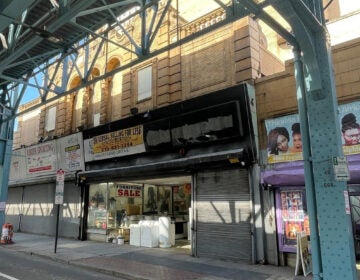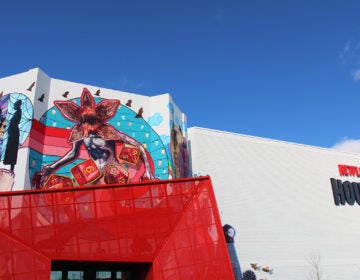Shopping in Center City is actually thriving amid fears of a ‘retail apocalypse’
Experts point to the success of Center City shops, including longtime staples like Macy’s, as evidence that brick-and-mortar retail is still very much alive.
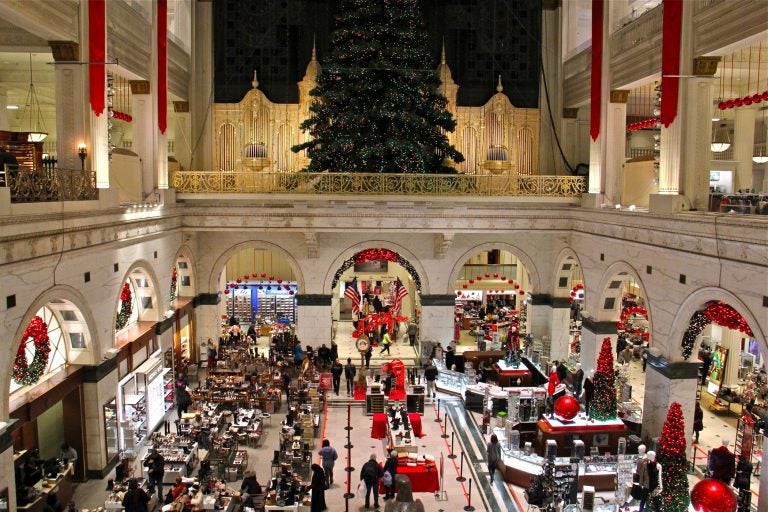
Macy's department store in Center City, Philadelphia. (Emma Lee/WHYY)
John Hightower has been coming to the Wanamaker Building in Center City — which has been a Macy’s since 2006 — for 70 years.
“This part is terrific, it hasn’t changed,” he says, gesturing at the breathtaking grand court at the center of the building with its marble pillars, 287-ton organ, and three-story Christmas Light Show.
“The rest of it has gotten smaller though, as online shopping has created this big vacuum,” said Hightower, who fears for the future of this Philadelphia institution. “So many stores have closed, but I love the crowds here. I love the shoulder-to-shoulder — it takes me back to when I was a kid with my pop.”
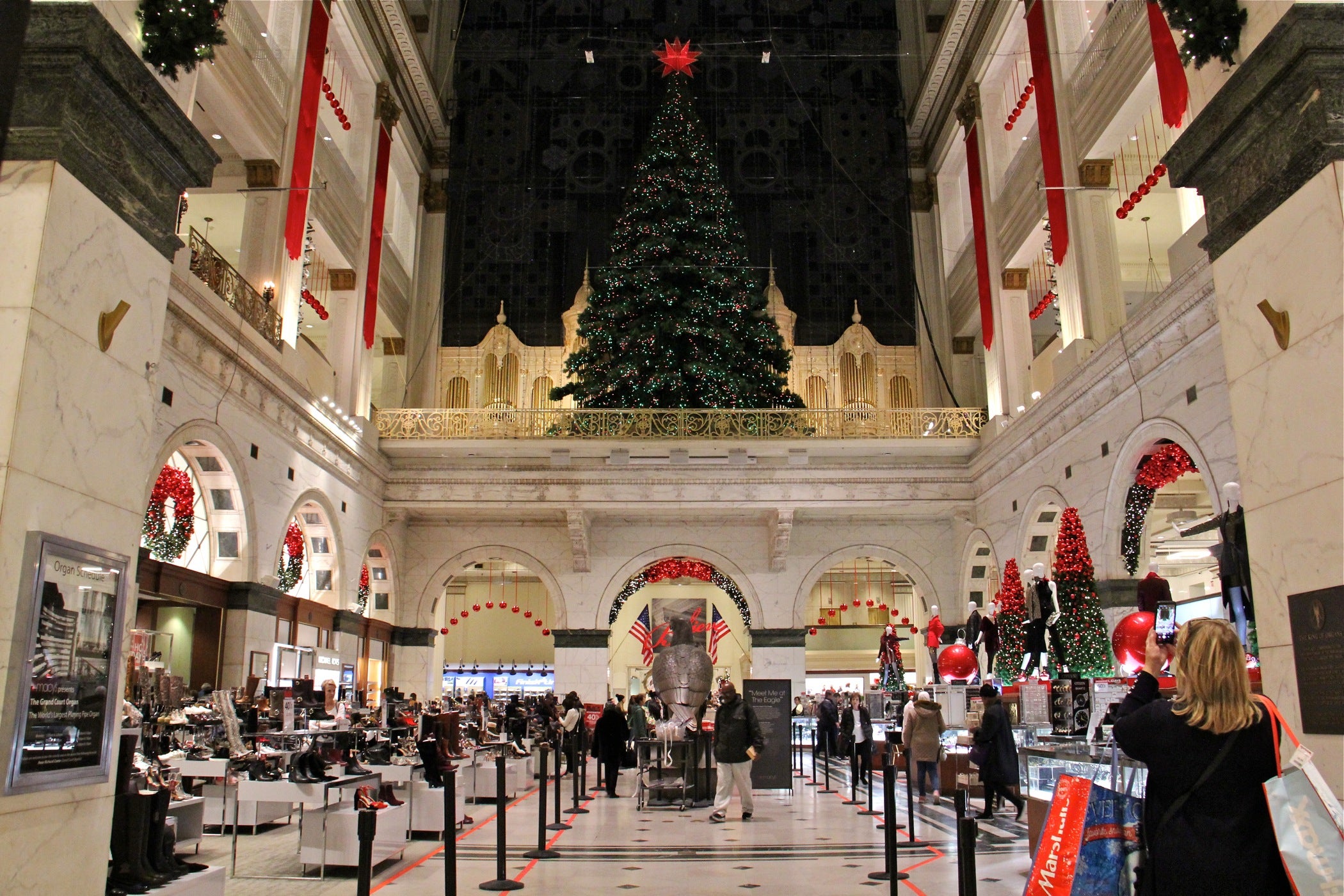
This Black Friday, Hightower isn’t the only one with anxieties about the future of retail in the age of Amazon.
Similar concerns have dominated the news for years. In 2017, news stories about the “retail apocalypse” began cropping up across prominent publications like Bloomberg and the Washington Post.
But retail experts interviewed by WHYY say the fate of that sector is far more complicated than that.
Lawrence Ring of William and Mary’s Raymond A. Mason School of Business says these kinds of mass closures grab headlines, while imagery of decaying 1980s malls capture the public imagination.
But he says less attention is paid to good news in the retail industry, like store openings, which aren’t done en masse.
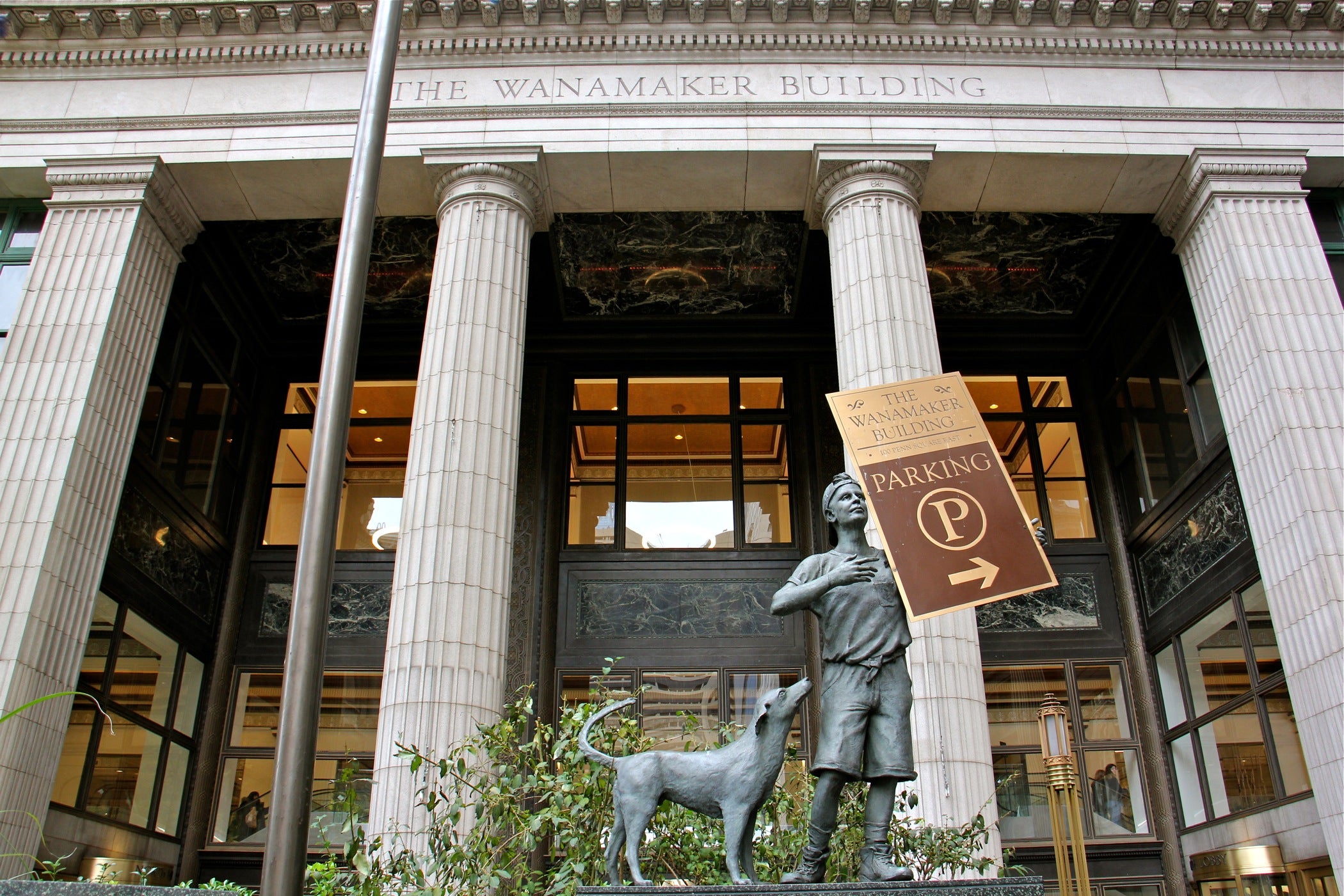
“In the last three years, there’s more new stores that have opened than old ones that have closed,” said Ring, who wrote an extensive critique of the “retail apocalypse” narrative as it emerged in 2017.
For an example of retail success close to home, just consider the thriving mega-mall in suburban King of Prussia. It is ranked as one of the most valuable malls in the country and just expanded a couple years ago to add 50 more shops.
And in downtown Philadelphia, a new report commissioned by the Center City District shows vacancy rates of 5.9% in the historic shopping corridors on Walnut and Chestnut streets. That figure includes restaurants.
The report notes that rising rents along West Walnut Street pushed more retailers to Chestnut and the numbered streets west of City Hall. The most recent tenants there include Heyday, Rumble Boxing, The Candle Bar, Planet Fitness, Champion and LoveSac.
Then, there is the recently opened Fashion District Philadelphia, which Center City District chief Paul Levy expects will help buoy the east side of City Hall.
That doesn’t mean the retail sector isn’t being disrupted. But it isn’t dying off, despite the wholesale shuttering of prominent companies like Payless ShoeSource, Radioshack and A.C. Moore or the perennial struggles of storied brands like Macy’s.
“There’s only two categories of stores which as a group are losing net stores each year: department stores and specialty clothing shops,” said Ring. “Every other category is gaining each year.”
Ring says bargain and discount stores are doing especially well. As real wages have stagnated for decades, and the prices of essentials like housing, education and health care have spiked, many mid-market shops have faced increasing headwinds.
Online shopping has changed the industry, of course, but many retailers have successfully adapted. Some of the biggest retail companies, like Wal-Mart and Target, open more stores than they close each year, according to Ring. Even Amazon has been opening brick-and-mortar stores.
The images of abandoned shopping malls that have been featured in many online slideshows are not indicative of the larger climate, said Maria Cosma, a retail expert and economist with Moody’s Analytics.
“When you see an abandoned shopping mall in a news story, it looks like the apocalypse,” said Cosma. “But this is only happening in places where malls have been overbuilt. These are places that have weak demographics and don’t have a lot of people to go shopping.”
The Center City District report makes much of the retail strength of Center City being bolstered by masses of tourists and office workers, as well as an affluent and frequently childless population downtown that has more money to spend.
“Clearly, the residents who are in Center City have higher incomes,” said Levy. “We have a lot more single-person households or dual-person households without a lot of children. So it’s both the the income, and the age and lifestyle of people that retailers are responding to.”
Despite Macy’s struggles, including flagging sales going into the fourth quarter, the store on East Market Street is reputed to be doing well. Lawrence Ring, of Willam and Mary, says that about one-fifth of Macy’s stores have healthy sales and profits, many of them in downtown locations.
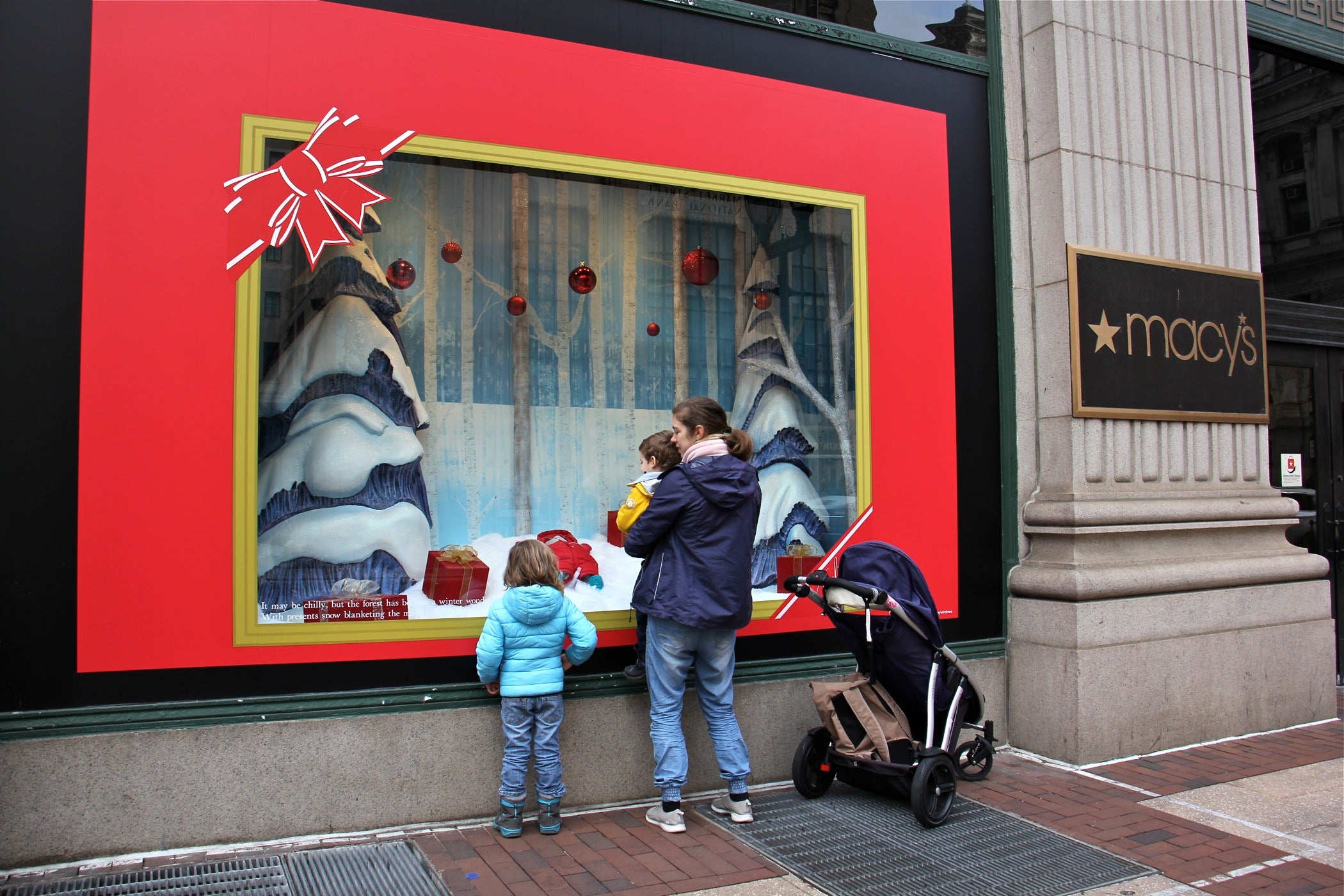
Macy’s declined to share financial details about any of its locations with WHYY, but a retail broker familiar with national retail chains’ sales said that the Center City Philadelphia Macy’s is the second most successful location after the flagship in Manhattan’s Herald Square.
“They seem to be doing well. We know they’re doing much better than the Macy’s stores across the chain,” said Levy, who noted the store has thrived on its reputation for good customer service.
On Black Friday, that impression was fortified by the masses of people watching the annual Christmas Light Show, a massive spectacle featuring 100,000 twinkling bulbs and a festive musical narrative featuring nutcrackers and snowmen.
Hightower was among them, carrying on a holiday tradition he’s enjoyed since the 1950s.
“I hope we can hold onto this for the future, because the kids love it,” said Hightower. “I’ll be bringing my great-grandchildren next week.
“This is Philadelphia. If you haven’t been here, you can’t say you are from Philly.”
WHYY is your source for fact-based, in-depth journalism and information. As a nonprofit organization, we rely on financial support from readers like you. Please give today.





